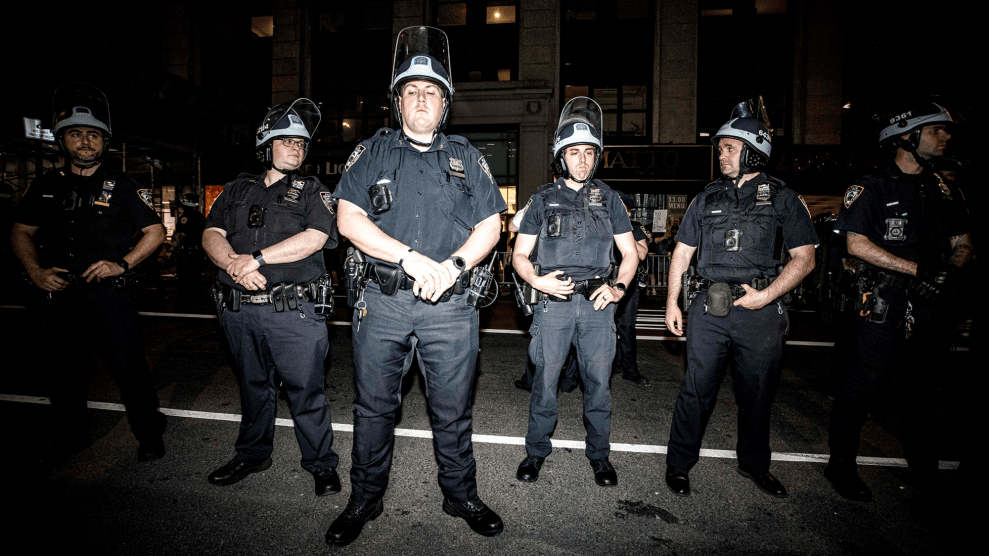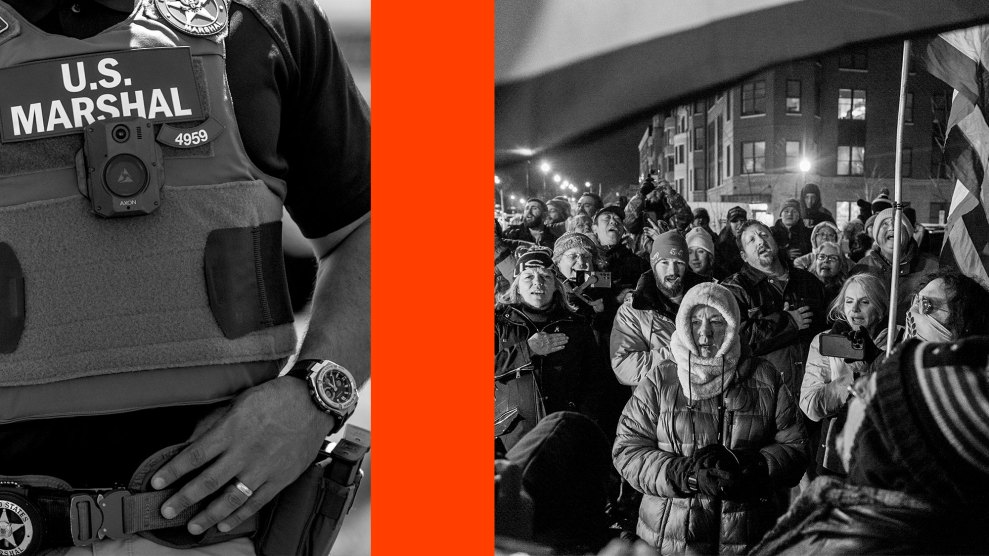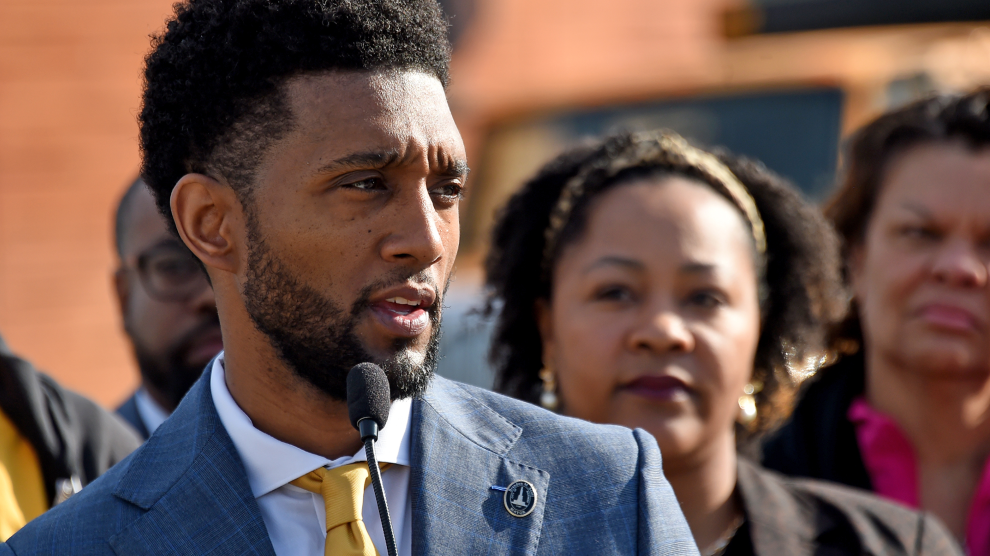In past presidential elections, few issues have been bigger than domestic crime. Richard Nixon won the presidency, in part, by promising to restore “law and order” in the wake of big-city riots. Prison furloughs in Massachusetts allowed the injection of Willie Horton into the 1988 race, helping sink Michael Dukakis. And Bill Clinton famously triangulated opponents with “tough on crime” legislation — putting more police on the street, pushing for the dubious three-strikes law and signing the 1994 assault-weapons ban.
Things have been noticeably different this year. While crimes committed by terrorists have driven much of this summer’s campaign dialogue, domestic crime has rarely been mentioned. But Monday’s expiration of the assault-weapons ban brought the topic back into the debate.
After promising as a candidate in 2000 to extend the ban, George W. Bush helped its expiration along, standing by while Congress declined to push for an extension. The move was met with glee from gun dealers, probably means a Bush endorsement from the NRA (the group’s already slamming John Kerry), and has prompted plenty of criticism — including Monday’s Los Angeles Times staff editorial, headlined “Blood on the NRA’s hands”:
“A large majority of Americans – and most gun owners – have steadfastly supported the assault gun ban. So why did Congress let it die, allowing dealers to once more peddle these weapons of mass destruction?
“Look to President Bush, who once said he supported the ban. His deliberate silence as the law’s time ran out justified congressional leaders in arguing that if the president wasn’t behind the prohibition, there was no point in voting to renew it. So today the expired ban is a trophy Bush can lay at the NRA’s feet as the group readies its presidential endorsement.”
The expiration of the ban also gave John Kerry a chance to portray Bush as weak on domestic crime, a case he made in a Monday speech to the National Association of Police Organizations:
“Ten years ago today, with the leadership of police officers all across the country, we passed a tough crime bill to protect America. We made sure that criminals couldn’t get their hands on assault weapons, and we put 100,000 cops into our nation’s communities where they could make an impact and stop crimes before they happen. But then George Bush became president. And when his powerful and well-connected friends asked for a massive tax cut, he said ‘sure,’ and he’s paying for it by gutting the COPS [Community Oriented Policing Services] program, slashing gang prevention and cutting enforcement programs that keep drugs like meth off the streets.”
“George Bush made a choice today. He chose his powerful friends in the gun lobby over the police officers and the families he promised to protect.”
Kerry also accused his opponent of undermining the war on terror by making it easier for terrorists to get hold of semi-automatic weapons through legal channels in the U.S. He cited an Al Qaida training manual recovered in Afghanistan that he said urged terrorists to obtain such weapons in America.
When asked to comment on Kerry’s speech, White House spokesman Scott McClellan responded with the “another false attack from Sen. Kerry” refrain, and pointed out that the country’s violent crime rate is at a 30-year-low. That’s true, the Associated Press reports, citing Justice Department statistics that show violent crime (not counting murder, which is calculated separately, but which has fallen since 2001) fell 55 percent in the past decade, and property crime fell 49 percent in the same period. Of course, the past decade is when the assault-weapons ban was in effect. Certainly there are many other factors in the decline, but it’s counterintuitive to argue low crimes rates justify removing existing safeguards.
In addition to supporting the weapons ban, Kerry also outlined a number of anti-crime proposals in his Monday speech. He avoided controversial topics like sentencing and drug laws, instead promoting a $5 billion plan that would: fully fund the COPS program, support John McCain’s efforts to close the gun-show loophole, share terrorist lists with local law enforcement, hire 5,000 prosecutors and expand DNA testing.
Monday’s announcement might allow Kerry to run to the right of Bush on law enforcement. Considering the NRA was never going to endorse Kerry – and the assault-weapons ban was supported by more than 60 percent of voters – coming out strongly against Bush’s stance helps align him with police forces and gives him a chance to rail against one of the president’s broken promises.












